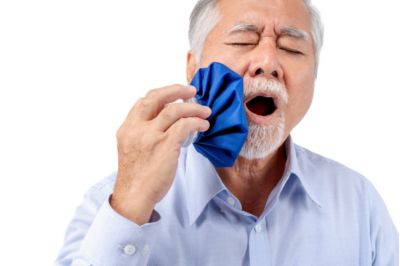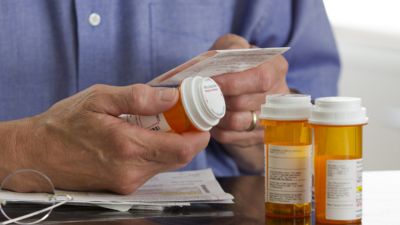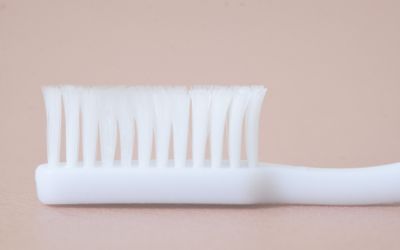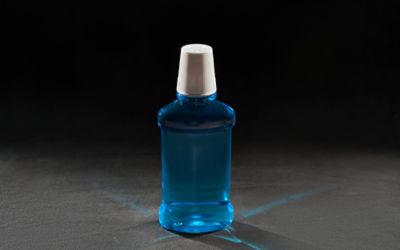News + Articles
How to heal faster after dental implants
Dental implants offer a reliable and long-lasting option. They replace missing teeth and improve your smile and oral health. However, healing after surgery is crucial for the long-term success of the implant.
Here’s a complete guide that helps faster healing after dental implant surgery. It combines advice from many experts. It aims to support a successful recovery.
Post-Dental Implant Surgery Care
“My dentist gave me a clear list of instructions, and I tried to follow them to the letter. It sounds simple, but it made a difference in how I felt better.” – Tim, age 32
Your dentist’s care instructions help you boost the chances of a successful recovery. These may include details on:
Ice Packs Wrapped
Use an ice pack wrapped in a towel on the affected area for 15-20 minutes. Do this in a cycle of on-and-off application as your dentist advised.
“My dentist told me to use an ice pack for a few days. It made a big difference in reducing swelling,” says James, a recent getting dental implant patient.”

Medication
Ask your dentist how to manage pain after surgery. They’ll tell you if ibuprofen or acetaminophen is enough. If you need something more, they might prescribe a medication.

Keep your Head Up
Use pillows for this while resting and sleeping. This helps reduce swelling and promotes healing.

Diet
First, eat soft foods. They need little chewing and won’t stress the implant area. Two weeks after surgery, you can start re-introducing a more varied diet.
Still, avoid very hard or crunchy foods. But you’ll likely tolerate more textures. Transition back to a balanced diet as instructed by your dentist.
See more: How Long After Implants Before I Can Eat Normally

Cool/Room Temperature
After your dental implant surgery, your mouth will be sensitive and sore. Hot foods and drinks can worsen this, causing swelling and discomfort.
Instead, stick foods and beverages to cool room temperature options for a few days. Cool temperatures can constrict blood vessels. They can help wounds heal faster and reduce the risk of swelling and sore surgical sites.
No Straws
After your dental implant surgery, your body will form a blood clot at the site of the implant placement. This clot is like a super-bandage for the area; it’s essential for healing!
Using a straw creates suction in your mouth. This suction can pull out the blood clot before it can do its job. This can lead to problems like Dry Sockets, More Bleeding, and Infection.

Understanding the Stages of Dental Implant Healing
- Stage 1: A blood clot forms at the implant site. This clot is essential for protecting the area and starting the healing process.
- Stage 2: It is soft tissue healing (first Weeks). Your gums heal over the surgical site. They protect the implant underneath. Reduce discomfort and swelling.
- Stage 3: Osseointegration (Several Months) This is the most crucial phase. The implant fuses with the jaw bone. This creates a stable base for the final tooth.
- Stage 4 is abutment and crown placement. After osseointegration, your dentist adds an abutment (connecting piece). Then, they add the final crown or artificial tooth.
Promoting Healing Faster After Dental Implant Surgery
Good Oral Hygiene
Brushing and flossing your teeth are crucial to preventing infection. It also speeds up your recovery after implant surgery. Here are the key points:
Use a soft-bristled toothbrush
This is crucial for protecting the healing site. It prevents irritation that could slow healing.

Use Flossing
Your dentist will tell you when it’s safe to start flossing around the implant again. Flossing removes plaque in areas your brush can’t reach. This is crucial for successful implant integration.
Use an antimicrobial mouthwash (if recommended)
Your dentist might suggest one after oral surgery to cut bacteria and aid healing.
Note: Avoid harsh mouthwashes. Also, avoid toothpaste with hard abrasives. Also, avoid other products that could irritate the surgical site.
See more: A Guide to Cleaning Implants by an Expert

Rest
Getting adequate rest allows you to help your body heal. Avoid strenuous activities during the first few days after surgery.
“I worried that the recovery would hurt my work. But I was back to my routine within a week. This was thanks to following my dentist’s advice and taking it easy for the first few days.” – John, age 45.

Quit Smoking
Smoking can impede healing and increase the risk of complications. If you smoke, doctors recommend quitting before and after surgery.
“I’d been a smoker for years, but I knew I had to quit for this to work. It was hard, but my dentist helped me find resources, and I was so glad I did. I’m convinced it’s why my implant healed so.” – David, age 55.

Stay Hydrated
Drink plenty of water every day. It will keep you hydrated and help in the recovery process.

Limit Alcohol
Alcohol can dehydrate you and slow down healing. It’s best to avoid alcohol consumption during the initial healing period.
See more: How Long After Getting Implants Can I Drink Alcohol?

Take Supplements
Using supplements such as zinc or vitamin D can support your healing. Consulting a dentist is necessary before taking any supplements. It is to ensure they are right for you and to avoid interactions with other drugs.

Massage Gums
Once the swelling has gone down after a week, massage your gums around the implants. This will increase blood flow. Following these tips for your dentist will help you heal faster. Don’t worry if it still takes a month or two to feel normal because each person’s recovery time differs.
See more: What not to do after implants? Advice from experts
Note: See a dentist before taking any supplements. They must be right for you and not interact with your other medications.
Potential Complications and When to Seek Help
Most patients experience a smooth recovery after dental implant surgery. However, it’s essential to be aware of potential complications. Contact your dentist immediately if you notice:
- Severe pain that doesn’t improve.
- Bleeding that won’t stop.
- Fever.
- Pus around the implant.
- Signs of infection: redness, swelling, warmth around the implant.
- Numbness or tingling that lasts for a long time.
- Signs of implant failure: loose implant, ongoing pain, recurring infection.
Important Note: This information does not replace your dentist’s specific instructions. Always follow their guidance and contact them with any concerns.
Successful Recovery Stories
1. The Athlete’s Speedy Recovery
Sarah is a 32-year-old fitness instructor. She worried about how dental implant surgery would affect her active lifestyle.
However, Dr. Pham helped her heal. He did this through a personalized plan. This plan included a special diet.
It also had a new exercise plan. It had detailed care instructions for after surgery.
Sarah followed the plan, focusing on nutritious drinks and soft foods. She replaced her usual high-impact workouts with low-impact activities like swimming and cycling.
Additionally, she kept strict oral hygiene. She used cold compresses to reduce swelling.
In two weeks, Sarah felt much better. She added more complex foods and exercises back into her routine.
She did this under Dr. Pham’s guidance. By the six-week mark, she returned to her regular activities with minimal discomfort.
2) Embracing a New Smile with Confidence
Maria is 62. She felt self-conscious for many years because of her missing teeth. But, dental implants have helped her regain her confidence.
Dr. Ronald Pham helped improve her life. Maria had concerns about pain after surgery, recovery time, and cost issues.
See More: How to Save Money on Implants?
She wanted a gentle and patient approach. She consulted Dr. Pham. He addressed her anxieties.
Dr. Pham explained the whole healing process. He covered the different options for anesthesia and pain care.
They also gave a realistic timeline for recovery. They discussed financing options to ease Maria’s worries.
After careful deliberation, Maria decided to proceed with the implant surgery. The specific procedures are confidential to protect patient privacy.
Throughout, Dr. Pham prioritized Maria’s comfort. He addressed any anxieties that came up during the dental implant procedure.
Adequate anesthesia and pain medication reduced discomfort. They did so during the surgery and recovery period.
See more: What Type of Sedation is Used for Implants?
Maria followed Dr. Pham’s instructions. She focused on a healthy diet of vitamins and minerals to aid healing.
She kept a gentle hygiene routine. She used a soft-bristled toothbrush and a dentist-recommended mouthwash.
Within a few weeks, Maria saw a significant improvement. She regained confidence in her smile. She shares her positive experiences.
She tells her friends and family not to let fear or uncertainty block their journey. It’s a journey to better oral health and a brighter smile.
Frequently Asked Questions
What Can I Expect In Terms Of Pain And Swelling?
Some discomfort and swelling are normal after surgery. But they should decrease over the next few days. Your dentist will prescribe pain medication. Putting cold compresses on the area can also reduce swelling.
What Kind Of Food Should I Eat?
Stick to soft and easy-to-chew foods like mashed potatoes, yogurt, and smoothies. This will help reduce and cut stress on the implant site and allow for proper healing. Transition back to your regular diet as your dentist advises.
How Can I Ensure Good Oral Hygiene?
It would be best if you kept a gentle hygiene routine. It’s crucial to stop the infection and help to heal. Use a soft-bristled toothbrush. Use a gentle, alcohol-free mouthwash. Use it to clean around the implant if your dentist recommends it. Remember to be gentle and avoid harsh brushing or flossing on the implant.

Dr. Ronald Pham, DDS, is a Doctor of Dental Surgery who graduated from the USC Ostrow School of Dentistry in 2015. With over 8 years of experience in restorative dentistry, including dental implants, crowns, bridges, fillings, root canals…
Dr. Pham has restored the smiles of +2,000 patients and is committed to providing professional dental care focused on patient comfort. He achieves this by combining a welcoming space and state-of-the-art dental technology.

Guaranteed Smiles!
As a premiere dentist office in Orange CA, we will always make sure that your experience is memorable, friendly, and professional. We strive to meet your highest expectations in every way imaginable, from your very first interaction with our office staff, to the quality of treatment you receive. We don’t take our patients’ trust for granted, and will promise to over-deliver with your best interest in mind. So give us a call today, and experience our first-class service!
Insurance
Accepted
We proudly accept most dental insurance plans, and welcome cash patients as well. Call us today for more information.
$199
Special
New to our dental office? Take advantage of our New Patient special offer with x-rays, exam, and full report of findings.
Extended
Hours
Do you have an emergency? Need to see us a little later or earlier? Let us know. We can be flexible to meet your busy schedule!
